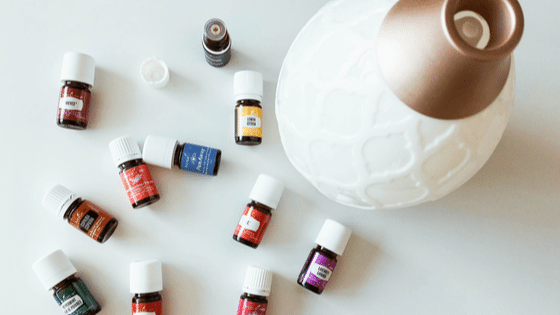

Disclosure: Some of the links in this article are affiliate links, which means that if you purchase through those links I will receive a small commission. For example, as Amazon Associate, I earn from qualifying purchases. If you decide to use these links, thank you!
Do you ever begin a task and almost immediately forget what you’re doing? Or maybe you feel like you’re in a cloud and moving much slower than everyone around you? Or while speaking with someone, you completely lose your train of thought?
If you can relate to any of these experiences, then you’re likely dealing with brain fog. But, the good news is that there are several powerful, researched-based ways to beat brain fog so that you start feeling better and reclaim your day.
Brain fog symptoms can vary in their severity. The common symptoms of brain fog include:
Research suggests that one in seven adults between the ages 18 to 39, and one in four adults older than 39, experience brain fog.
The good news is that these symptoms are your body’s way of telling you that something needs to change and you can do something about it.
The most common causes of brain fog include lack of sleep, dehydration, high levels of inflammation, hormone imbalance, food allergies, and stress.
There are also medical conditions that can lead to symptoms of brain fog, such as Multiple Sclerosis (MS), menopause, chronic fatigue syndrome, and sleep disorders.
In addition, as I mention in the post, My Experience with Hashimoto’s Thyroiditis: Diagnosis and Treatment, brain fog is one of the most debilitating symptoms of Hashimoto’s. I have struggled with brain fog on and off for about five years. Luckily, I have researched strategies to help with this and have found natural solutions to beat brain fog.

There are thousands of studies that show that meditation can positively impact your mental health. Meditation can help to reduce stress, increase focus, increase creativity, and refresh your mind.
In addition, a study published in the Journal of Happiness Studies found that just 10 days of using a meditation app increased positivity and well-being.
I highly recommend starting with an app like Headspace or Buddhify. Each of these apps provide guided meditations that you easily fit into your day. Even as little as five minutes of meditation helps to clear my mind.
Just 10 minutes of exercise can have a positive impact on memory and problem-solving ability (source). Also, exercise has been found to reduce stress and anxiety – two big culprits when it comes to brain fog.
Exercise can provide a much needed “brain break” when you’ve been sitting all day. You will find that you will function much better and experience less brain fog if you take time to go for a walk. Just make sure not to take your phone with you so that you aren’t distracted by text messages, notifications, etc. I like to think of walking as a moving meditation.
Take a look at your day. Add in

Being out in nature is another great way to beat brain fog. One important feature of being outside is the experience of being away, in which a person feels a sense of escape from the stressful demands of daily life (source).
Breathing in the fresh air is also beneficial. Simply crack open a window or step outside and take a few deep breaths. This allows you to get more oxygen into your body and more carbon dioxide out.
Try slowly breathing in through your nose, hold the breath for a few seconds, and then slowly breathe out through your mouth. If you are short on time, you can see benefits by doing this for just one minute.
While you’re outside soak in some sun. Even on a cloudy day, the natural light that does come through is better for you than artificial indoor lights.
Try to go without sunglasses because when your eyes sense light they signal your brain that it’s daytime and you need to be awake and alert. This resets your circadian rhythm (sleep and wake cycles) that often get out of balance, which can clear the daytime brain fog.
Being in the sun will also help you to get much needed Vitamin D.

As I mentioned, lack of sleep and sleep disorders are major causes of brain fog. For tips for better sleep at night, check out Proven Ways To Improve Your Child’s Sleep Hygiene. These tips work for both kids and adults!
And there is no shame in taking a nap during the day. A short nap can mean a clear mind, which will better serve you for the rest of the day. Studies show that 10 to 20 minutes of sleep is best. Longer naps can cause sleep inertia, or what I call a nap coma – a period of grogginess and reduced performance caused by waking in the middle of deep sleep.

We all know that drinking water is important to your health. And research shows that even mild dehydration can lead to symptoms of brain fog.
This is because your brain is about 75% water. When you are hydrated you will be able to think faster, be more focused, and experience greater clarity and creativity.
Water is also essential for delivering nutrients to the brain and for removing toxins.
Since everybody is unique, everyone needs a different amount of water per day. The color of your urine can help you determine your hydration level. If your urine is very light yellow and has little odor, you’re well hydrated. The darker and more aromatic your urine, the more dehydrated you are.
Stay hydrated by carrying a water bottle with you at all times, infuse water with fruit, drink water with your meals, and if needed set an alarm to remind you to drink water throughout the day.

Essential oils can stimulate your brain when you need a boost.
A few well-researched essential oils that you can use to support your brain and mental clarity include:
You can also diffuse blends of these oils in your home or office. For example, I love diffusing three drops each of citrus essential oil and peppermint essential oil while I”m working to help me stay alert and focused.
Cutting back on foods that contain sugar can help you beat brain fog. Sugar might make you feel energetic at first, but ultimately sugar causes inflammation and hinders memory.
Sudden peaks in blood sugar levels can also lead to symptoms of mood swings, brain fog, and fatigue.
Due to these reasons, it is best to get your carbs from quality foods like fruits and vegetables.

If you experience brain fog often, then you may have food allergies or sensitivities.
Food allergies or sensitivities can cause changes in your gut microbiome and they trigger inflammatory reactions. This can affect nearly every cell, tissue and system in the body, especially the gut-brain connection.
The top two inflammatory foods associated with brain fog are dairy and gluten.
There are a couple of ways that you can discover if you have food sensitivities:
After completing a LEAP diet I began to feel relief from my symptoms. The clearing of brain fog and fatigue were the most apparent.
If your episodes of brain fog are frequent, it may be time to visit your doctor to rule out chronic illnesses or conditions.
I hope these tips help you to beat brain fog! Please share the goodness on Instagram and Facebook and tag me @tonsofgoodness. Thank you!
If you would love support in meeting your health goals join my facebook group at https://www.facebook.com/groups/tonsofgoodness/ Here you will find a supportive, judgement free, body positive tribe to help you live a healthy lifestyle. Click here now to join!


*Please note that the information in this blog post should not be used to diagnose, treat, prevent or cure any disease or condition. This information is not a substitute for medical advice from your health care professional. For more details see my medical disclaimer here.